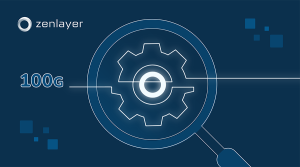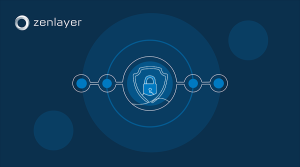On May 25, 2017, Zenlayer and Telin Singapore, in cooperation with GOPS, hosted a forum in Shanghai to share best practices in digitally expanding into Southeast Asia, the fastest growing Internet market in the world.
 (Septika Noegraheni Widyasrini, Telin Singapore CEO)
(Septika Noegraheni Widyasrini, Telin Singapore CEO)
Zenlayer CEO, Joe Zhu, discussed opportunities in the global market

- Key markets in 2017: Southeast Asia (SEA), India, Brazil
- Opportunities in key markets:
- Indonesia: e-commerce, mobile gaming, live streaming
- Philippines: e-commerce, social media, gaming, live streaming
- Thailand: cloud, live streaming
- Vietnam: gaming, live streaming
- India: smart phones, mobile gaming, e-commerce
- Brazil: e-commerce, gaming
- 25 ms latency: anything above this results in a less than optimal user experience
If you’re interested in obtaining a copy of Joe’s presentation, please email us at info@zenlayer.com
Telin Singapore executive, Jie Wen, shared insights on the Southeast Asian Internet economy


- Indonesia:
- 135 million Internet users in 2017
- Growth of social media users and mobile commerce shoppers outpaces the rest of SEA
- Malaysia:
- Access to renewable energy
- Ample land compared to neighboring Singapore
- Attractive prices compared to Hong Kong and Singapore
- Iskandar Malaysia (special development region) generating new levels of interest
- Philippines:
- Filipinos spend the most time using the Internet on a daily basis compared to the rest of the world
- Lack of competition among telcos
- Singapore:
- Gateway to SEA and the rest of the world
- Mature and competitive data center market
- Top tier infrastructure
Shanda Games COO, Zhenwang Feng, shared the company’s global network deployment

- Network is the foundation: Shanda uses local data centers instead of serving customers from China data centers because of network quality and latency
- Shanda’s global network:
- Public Internet – BGP IP transit
- Intranet – high speed interconnection between data centers
- SDN (software defined networking) needs:
- Flexible and burstable
- Low latency
- Self service
Jun Xu, Operations Management Executive at Tencent, explained how Tencent data centers operate


- Quality assurance:
- Human related errors: 0
- Equipment problems: 21
- Accidental faults: 1
- Testing
- Functional tests
- Stress tests
- Integrated tests
- Preventive operating procedures
- Pre-established emergency procedures
- Practice drills
- Innovation
- Modular
- Portable
- Independently operate








